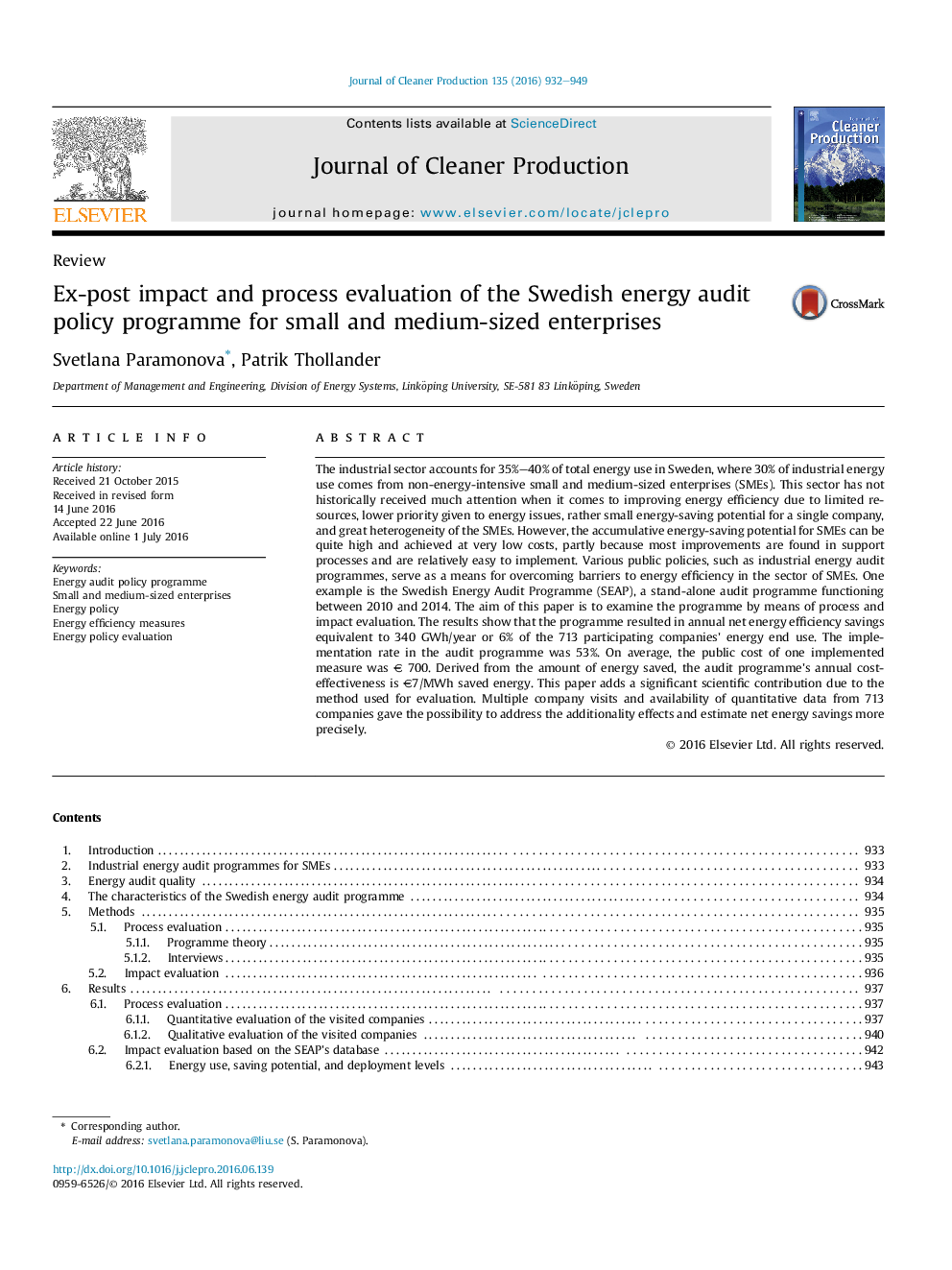| Article ID | Journal | Published Year | Pages | File Type |
|---|---|---|---|---|
| 8101324 | Journal of Cleaner Production | 2016 | 18 Pages |
Abstract
The industrial sector accounts for 35%-40% of total energy use in Sweden, where 30% of industrial energy use comes from non-energy-intensive small and medium-sized enterprises (SMEs). This sector has not historically received much attention when it comes to improving energy efficiency due to limited resources, lower priority given to energy issues, rather small energy-saving potential for a single company, and great heterogeneity of the SMEs. However, the accumulative energy-saving potential for SMEs can be quite high and achieved at very low costs, partly because most improvements are found in support processes and are relatively easy to implement. Various public policies, such as industrial energy audit programmes, serve as a means for overcoming barriers to energy efficiency in the sector of SMEs. One example is the Swedish Energy Audit Programme (SEAP), a stand-alone audit programme functioning between 2010 and 2014. The aim of this paper is to examine the programme by means of process and impact evaluation. The results show that the programme resulted in annual net energy efficiency savings equivalent to 340 GWh/year or 6% of the 713 participating companies' energy end use. The implementation rate in the audit programme was 53%. On average, the public cost of one implemented measure was ⬠700. Derived from the amount of energy saved, the audit programme's annual cost-effectiveness is â¬7/MWh saved energy. This paper adds a significant scientific contribution due to the method used for evaluation. Multiple company visits and availability of quantitative data from 713 companies gave the possibility to address the additionality effects and estimate net energy savings more precisely.
Related Topics
Physical Sciences and Engineering
Energy
Renewable Energy, Sustainability and the Environment
Authors
Svetlana Paramonova, Patrik Thollander,
